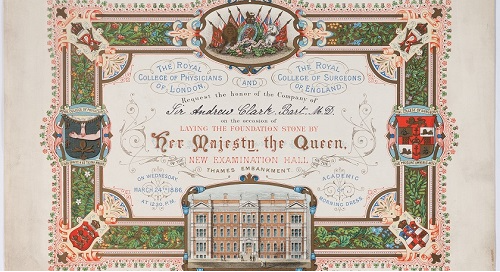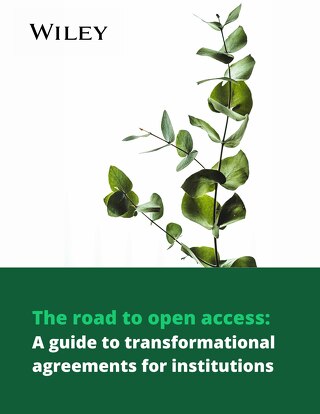early-career-librarian-guest-post-series-approaching-transformative-agreements
February 28, 2020
Transformative Agreements? Huh? It felt like every splashy headline in 2019 surrounding the world of libraries and publishing referenced transformative agreements. So, I made it my mission in 2019 to understand what everyone was talking about.
It turned out to be more complicated than I expected. What actually is a transformative agreement? What does it have to do with open access? And why are we talking about it now?
Can I get a definition?
I first heard about transformative agreements after The University of California ended its subscriptions with Elsevier. Was I late to the game? Most definitely, but I think that this news story is what brought transformative agreements to the forefront for most librarians. I did my best to keep up with those headlines, but I was still confused about what a transformative agreement actually was. Turns out I wasn’t alone.
At the 2019 Charleston Conference during a session on transformative agreement partnerships, an individual asked the panel to define a transformative agreement. It was met with a long pause, a bit of microphone passing, and the statement that they don’t have an explicit definition of a transformative agreement. I did get a few different definitions from conference presentations and conversations with other librarians in 2019:
A transformative agreement is an agreement that transforms how libraries work with faculty.
A transformative agreement takes funding and reapplies it to open publishing.
A transformative agreement breaks away from the Big Deal Package.
A transformative agreement is an agreement that focuses on publishing.
A transformative agreement offers a path to Open Access.
All of these descriptions are correct. Just as open access is difficult to define, so is a transformative agreement. A general definition might be this: A transformative agreement is a contract where a library pays a vendor for open access publishing, rather than paying a vendor for subscription-based reading. However, it’s not that cut and dry. Transformative agreements can take many shapes and sizes depending on your institution’s needs. Overall, what I took away from these discussions was that a transformative agreement is a break from the contract norm.
And what has been our norm? Big Deal Packages and pay-to-read subscriptions. I think at this point we all know these models are not fully sustainable (feel free to show me otherwise!). I started working with licensing e-resources for The University of Tennessee libraries in 2018. Now that we can evaluate the usage behind our Big Deals from many years ago, it’s clear that they don’t fit our needs for 2020. These deals and pay-to-read subscriptions were relevant and valuable for a time, but now, questions surrounding perpetual access, hosting fees, true usage and faculty publishing needs are on our minds. Our user’s needs are different from what they were 20 years, 10 years, even 5 years ago.
To quote Jen Maurer of Cambridge University Press, “We have to do something, so it [a transformative agreement] is a means to start. This is a means to get creative and think about doing things differently. There is no one great solution at this point. I don’t think “The Transformative Model” is even really a thing on its own. I think there are lots of flavors and sizes of what it will be and what it needs to be. Especially, if we are going to [move] forward. More broadly, it feels like a call to action.”
Transition to Open Access
Transformative agreements are not new. Some libraries broke from tradition many years ago. We just happen to see the fruit of their labor now. What caused libraries to begin transforming their contracts?
Many institutions have what are called open access mandates going back over a decade. An open access mandate means that any research faculty or staff is required to make their published work OA by either depositing in their institutional repository or publishing in an OA journal. You can follow the growth of these mandates using ROARMAP, the Registry of Open Access Repository Mandates and Policies, from The University of Southampton. If an institution mandates publishing OA, it would behoove the institution to assist financially. A transformative agreement helps meet that need by transitioning costs to cover publishing OA, rather than reading.
Another factor in the recent uptick in conversation surrounding transformative agreements is due to the scheduled time frame for implementing Plan S, a plan by cOALition S where all publications from research funded by grants must be published open access effective 2021. If my math is correct, that doesn’t leave us much time!
The need to meet these mandates and a general desire to promote OA publishing spurred many libraries to negotiate contracts where open access publishing was a greater focus.
What we are seeing now, is that there is no one-size-fits-all transformative agreement. Just look at UNC Chapel Hill’s pilot program with SAGE from October of 2019. We will continue to see variations and developments in 2020.
What now?
The discussion surrounding transformative agreements and its implications is not over. A new question was just raised on Scholarly Kitchen about whether or not transformative agreements violate procurement requirements. The debate continues.
So, what can you do now? Give yourself time to start the conversation. Shaking up the norm takes considerable time and patience. One vendor I spoke to said they would get back to us in one year about the possibility to maybe consider a conversation of perhaps entering into a transformative agreement. You have to start somewhere! At this point though, the brave few libraries who started conversations 5 years ago paved the way for libraries to easily begin the conversation with vendors now.
Not only do you need a good working relationship with your vendors, but with your institution as well. Do you have an open access policy? Do your faculty support OA? Are your faculty publishing OA? Where? What are your vendors’ average article processing charges? Are you communicating clearly with your Collection Strategy and Scholarly Communications Departments? There are a lot of working pieces that need to be communicated across your institution and with your vendor.
Most important of all… can you walk away from the negotiating table? The ability to walk away is your greatest tactic when negotiating a deal. If you are obligated to finalize an agreement, you aren’t holding any cards at the table. Ask yourself, do you have the support from library administration to walk away from a contract? Second, do you have the backing of your faculty, staff, and students to no longer subscribe to a resource? Walking away from the negotiation table does not have to mean forever. Even UC and Elsevier are planning to meet again this Spring to discuss reopening negotiations.
Transformative agreements may not be the answer, but I’m glad to see that publishers and libraries are willing to try new things. I have not addressed all aspects of transformative agreements in this post like copyright, transparency, or hybrid alternatives. So, go learn more! Know your options and heed the “call to action.”
You could be featured on the Early Career Guest Post Series on The Wiley Network! Apply now to be the 2020 winner of the Wiley Librarian Scholarship Award! The deadline to apply is September 18, 2020.








